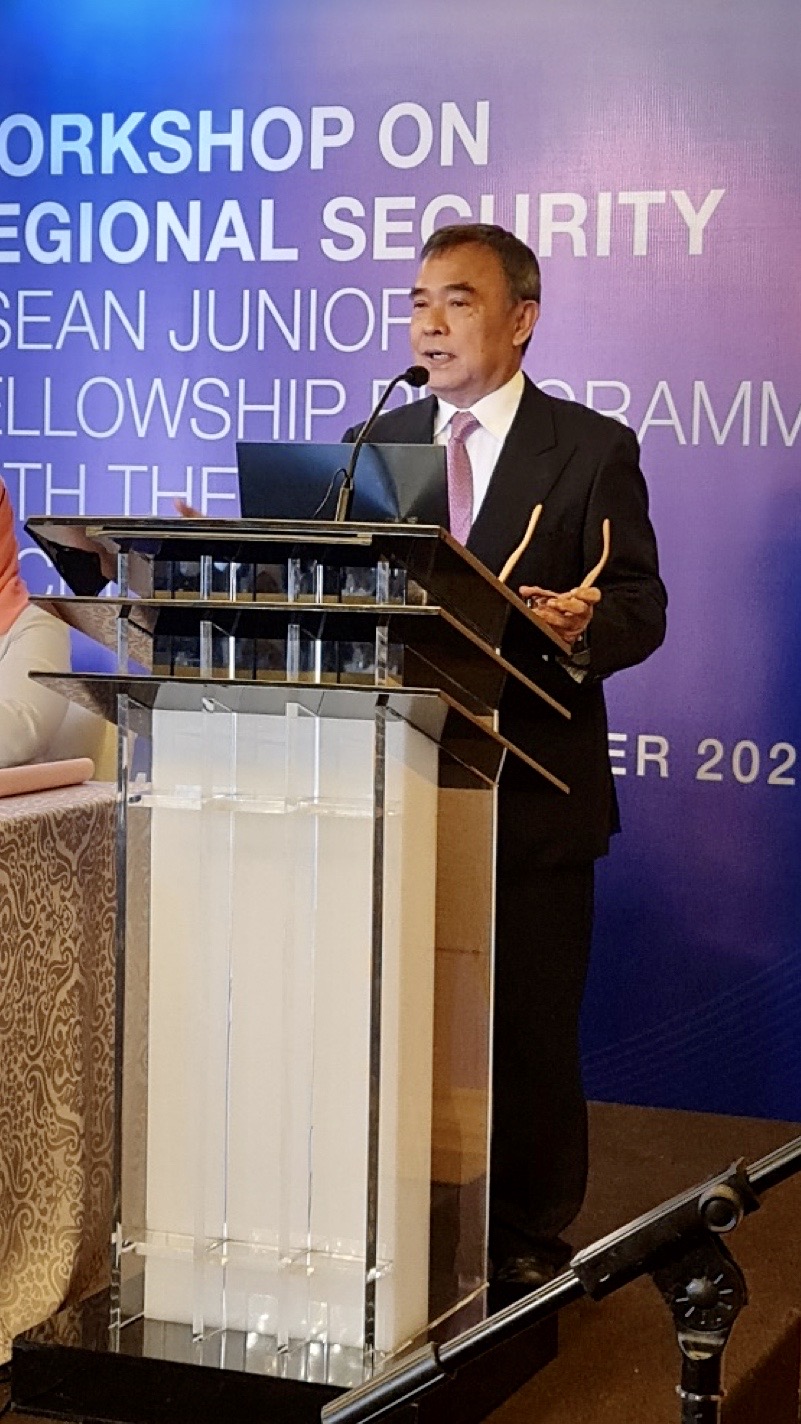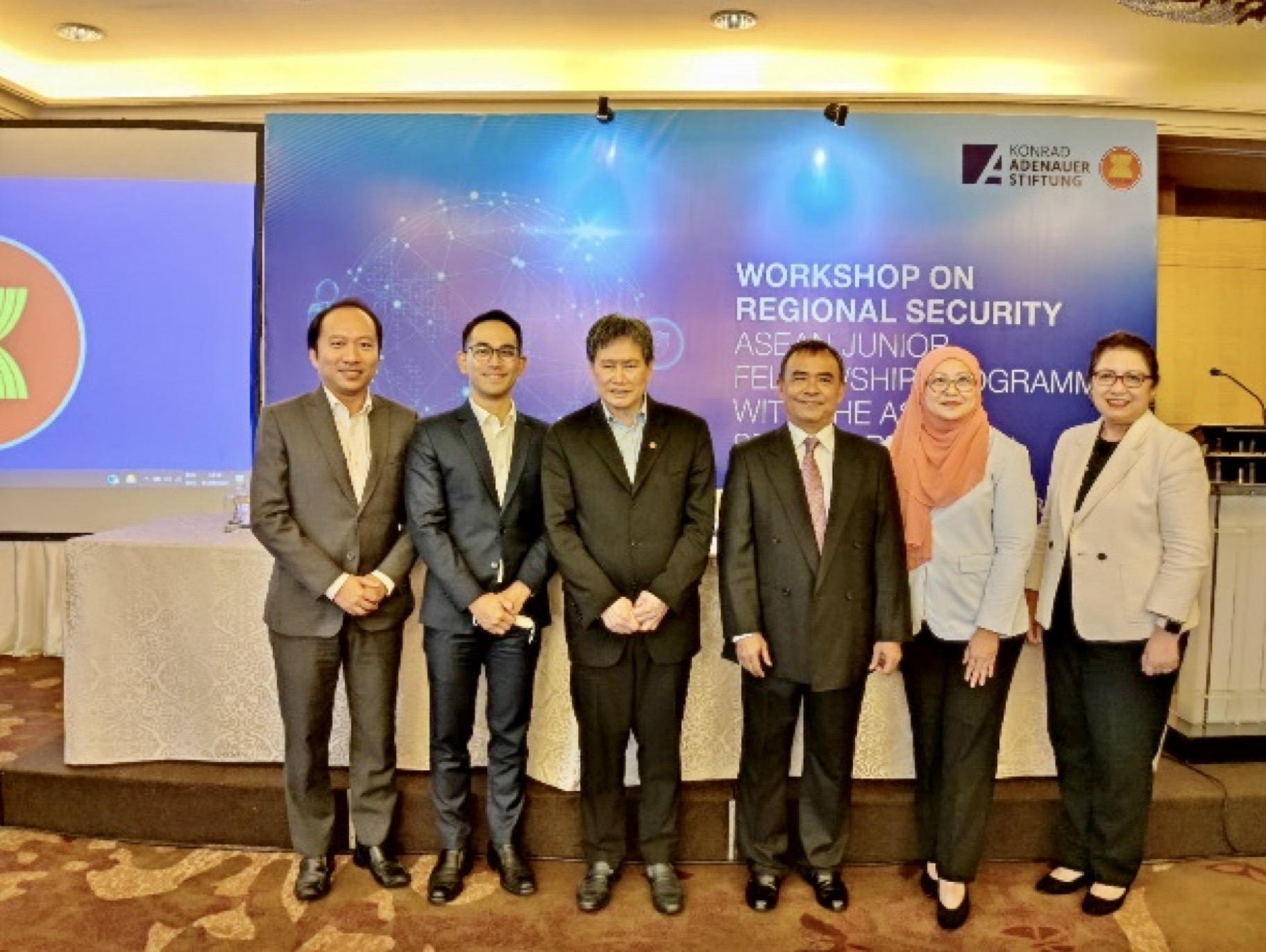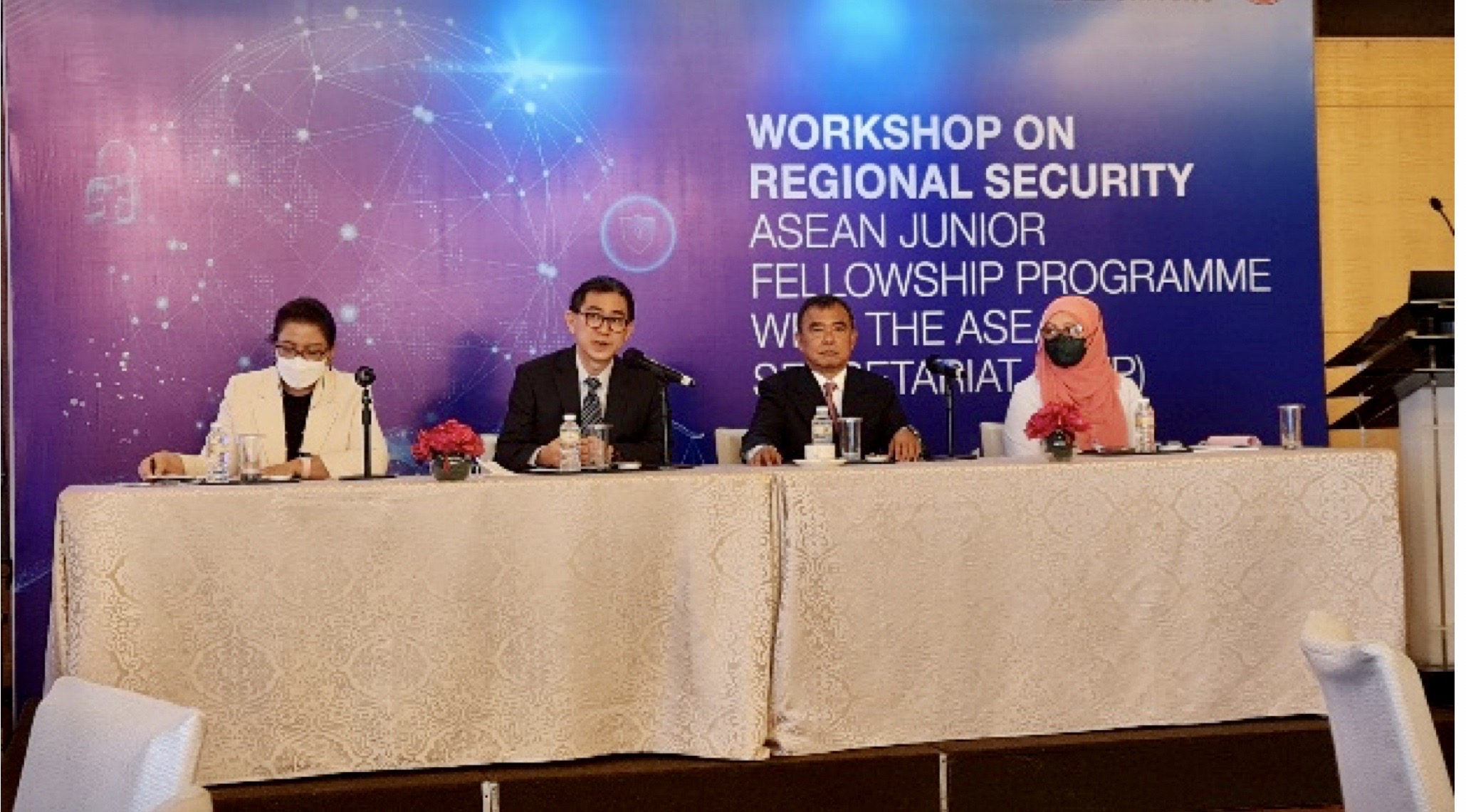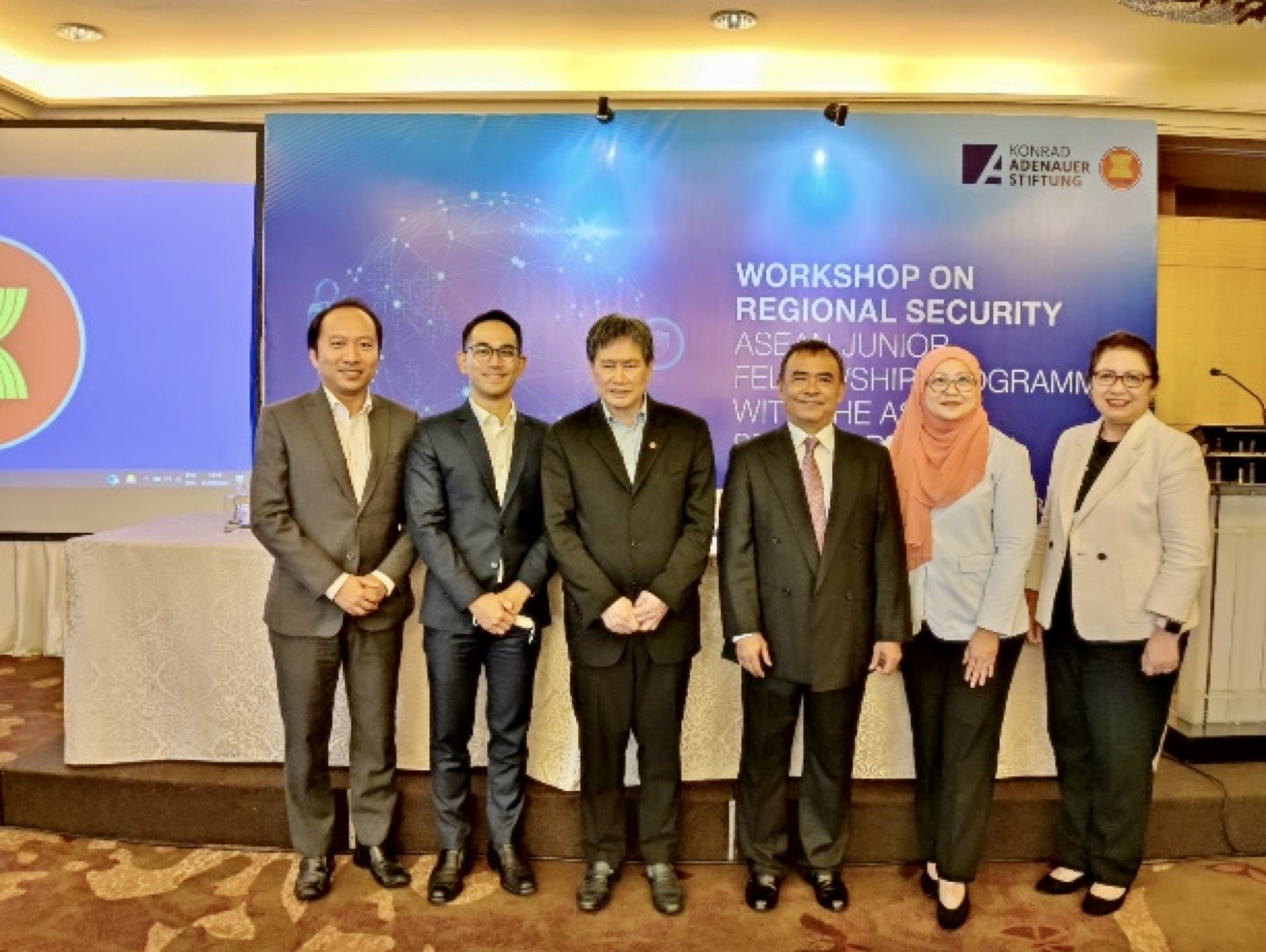At the invitation by H.E. R.M. Michael Tene, Deputy Secretary-General of ASEAN for ASEAN Political-Security Community, Ambassador Pou Sothirak, Executive Director of the Cambodian Institute for Cooperation and Peace took part in the Workshop on Regional Security under the ASEAN Junior Fellowship Programme with the ASEAN Secretariat (AJFP) from 31 August – 1 September 2022, in Jakarta, Indonesia, co-organized by the ASEAN Secretariat and Konrad-Adenauer-Stiftung (KAS) Singapore Office and is supported by the Ministry of Foreign Affairs of Brunei Darussalam.
The two-day Workshop on Regional Security is intended to increase the knowledge and effectiveness of junior officers of ASEAN Member States in expanding regional cooperation through engagement with the ASEAN Secretariat and covers six sessions: (1) Indo-Pacific: Opportunities and Challenges; (2) Reflections on ASEAN’s Journey toward a Cohesive and Responsive Community; (3) Taking Stock of ASEAN’s Role and Position in the Regional and International Community; (4) Managing and Responding to the Region’s Strategic and Geopolitical Environment; (5) Enhancing ASEAN-led Processes in the Regional Security Architecture; and (6) ASEAN’s Response to Current and Potential Regional Flashpoints.
During Session 2 Amb. Pou Sothirak holds the view that ASEAN needs to accelerate its integration process to mitigate economic disparity and inequality among member states, especially there still much to accomplish in narrowing the development gaps for the lesser developed ASEAN nations. The bloc should avoid the abuse of power and ensure its journey toward democracy do not regress and that pollical freedom is assured and that freedom of expression and free media are to be observed to promote the spirit of caring to maintain the bloc’s liberal agenda intact. ASEAN norms which have been embedded in an open, inclusive regional architecture, creating a multi-layered structure of institutional frameworks with ASEAN at the center, must not constrain ASEAN space for action to achieve desirable results. Externally, ASEAN needs to go beyond the consensual way and non-substantive reaction in dealing with today’s pressing challenges, ranging from the denuclearization of the Korean Peninsula, the South China Sea issue, the humanitarian crisis, and the military coup in Myanmar, the war in Ukraine, power competition between the big powers and other non-traditional threats such as the effects of climate change or post-Covid-19 recovery. The future of ASEAN is challenged internally by how ASEAN intends to conduct its internal affairs to keep its raison d’être relevance and the ASEAN Way handy in settling domestics grievances and other transboundary issues between and among member states; and externally by the bloc’s ability to cope with the shifting of the world order being unfold in the post-Covid-19 effectively.
During Session 6 Amb. Pou Sothirak shared his thoughts on the tension created by the South China Sea issue which has been considered the most complex regional flashpoint which could destabilize the hard-earned peace in this region if not properly handled. Sustainable peace in the South China Sea demands that ASEAN succeed in the management of the intensifying geopolitical rivalry between great powers as well. ASEAN countries and China need to reaffirm their commitment enshrined in the DOC and ramp up their efforts in speeding up the negotiations of the COC. Therefore, both sides should resolve to address the shortcomings and overcome factors that delayed the implementation of the DOC. In addition, for the sake of long-term peace and stability in the South China Sea, it is important that ASEAN and China prevail over the tough negotiations on the drafting of the COC and can achieve full effectiveness of the Code in ensuring that it has all the biding substances to safeguard peace and stability in the South China Sea, let alone resolve the complex disputes between and among claimant states.





